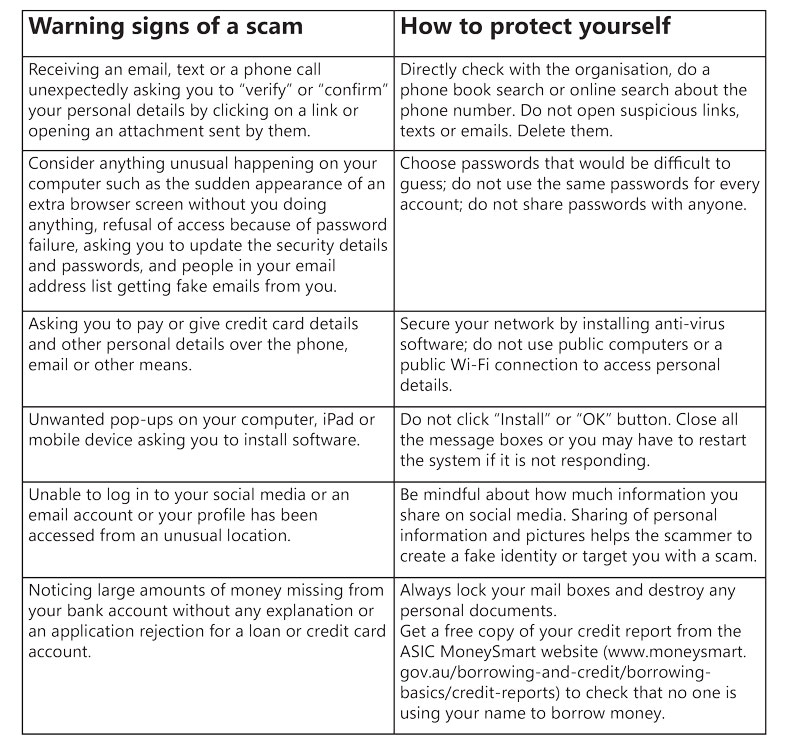
Scams against the elderly continue to grow as criminals find more ways to carry out both new and old scams. Elderly people are targets, with the Federal Government’s Scamwatch website reporting people aged over 65 in Australia lost more than $12 million in 2017 to scams.
One such popular scam is the Personal Identity Theft Scam. It involves using someone else’s identity – such as account details, passport, tax file number, licence, medicare or other personal identification details – to steal money or gain other benefits. A few common examples of such scams are:
Phishing – Scammer tricks you into providing personal information.
Hacking – Scammer gains access to your computer by exploiting security weakness on your computer, mobile, or iPad.
Remote Access – Scammer tricks you into giving access to your computer and paying for a service you do not need.
Malware -Scammer installs the software on your computer that allows them to access your personal files and to watch what you are doing on your computer.
Fake Online profile – Scammers set up a fake online profile on social media and send you a ‘friend’ request.
Document Theft – Scammers access your unlocked letter boxes or discarded bills, insurance details and health records.

HAVE YOU BEEN SCAMMED?
Contact ScamWatch Online: Report a scam to the Australian Competition & Consumer Commission (ACCC) by using its website www.scamwatch.gov.au You may be encouraged to include the details of the scam contact you received, eg, email or phone number.
If you have been threatened, assaulted or had your property stolen, contact your local police immediately.
If you think you have provided personal details to a scammer contact your bank, financial institution or other relevant agencies immediately. You can also contact iDcare – a free government-funded service which will help you with your situation. Visit the iDcare website at www.idcare.org or phone 1300 IDCARE (1300 432273).
Posted by


